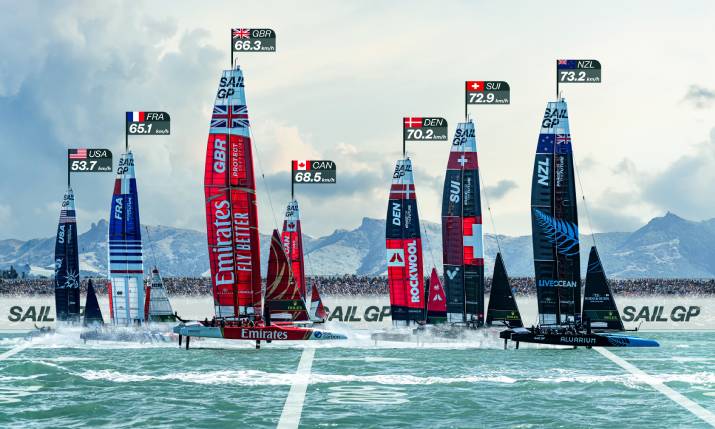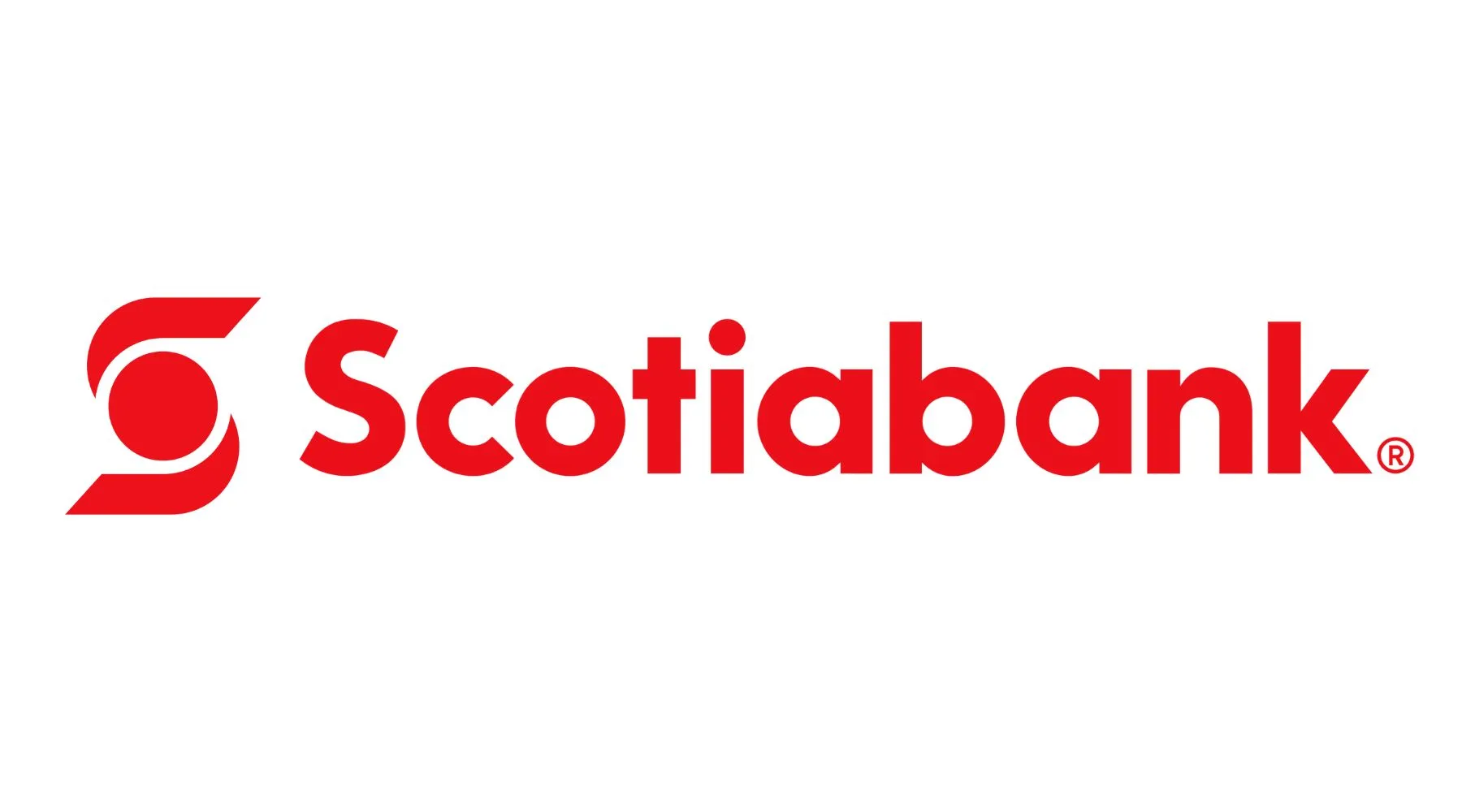To alleviate the onsite crew, studio programming was remotely produced from Bristol, CT
For the second time this season, hockey returned to its origins in the outdoors with the 2024 NHL Stadium Series at MetLife Stadium in East Rutherford, NJ. Pitting the Philadelphia Flyers vs. the New Jersey Devils on Saturday, Feb. 17 and the New York Islanders vs. the New York Rangers on Sunday, Feb. 18, the two-day affair in the Meadowlands put ESPN’s operations team to the absolute test. Whether it was a dustup with some early morning snow, alterations to the onsite crew, or the integration of technologies not typically seen during an indoor broadcast, teamwork and preparation prevailed in the end.
Brock Wetherbee, Linda Schulz, and Jon Winders at the 2024 NHL Stadium Series.
“It came down to planning and anticipating the additional equipment that would be needed,” says Jon Winders, operations specialist, ESPN. “We made sure that we had everything to help with what our production team wanted in place.”
A Fight With the Forecast: Snow Flurries Lead the List of Challenges Being Outdoors
On Friday night, Devils and Flyers fans went to bed with dreams of excitement over the following day’s fun. As for ESPN Operations, which also features the skills of Senior Specialist Jeff Werner, Senior Operations Manager Erin Orr, Operations Specialists Brock Wetherbee, and Operations Coordinators Carson Kenny and Adam Moossmann, the team went to bed hoping they wouldn’t see too much snow on the ground. In years past, outdoor NHL games were delayed by melting ice from higher temperatures and sun glare, but the pouring on of snow could also create far from ideal conditions for the players and the broadcaster. Ultimately, the snow landed and was cleared prior to gametime, but in the lead up to the event, the team made sure preparations were in order.
“We didn’t get as much as everyone expected, but there was a lot of traffic on last Sunday and Monday to get folks moving ahead of the storm,” says Winders. “The snow delayed a bit of our setup [for the weekend].”
NHL and ESPN Operations had to deal with early morning snow on Saturday.
With snow not being a huge factor, the bigger problems revolved around crewing. COVID-19 cases are farther down than they were during the bubbles, restarts, and shortened seasons of 2020, but during the winter months, there are still occasional flare ups. Unfortunately, the lingering effects of the pandemic are still impacting productions four years later.
“We dealt with the usual challenges around this time of year where someone tested positive for COVID-19,” adds Winders. “We were fortunate that we were in this part of the country and found someone who’s very qualified to fill that person’s position.
A four-point Skycam was installed for aerial coverage.
Bigger Venue, More Tech: Team Handles Integration of Skycam, Ice-Level Jib
MetLife Stadium is much larger than hockey-centric venues, and with much more space to innovate, the operations team was responsible for assembling an additional load of equipment and gear for both broadcasts. Working with representatives from NHL Operations, including SVP, Arena & Event Operations, Dan O’Neill; Director, Broadcast Engineering & Remote Technical Operations, Jon Muro; and Director, Broadcast Operations, Maggie Kukar, the network was able to bring in and install numerous workflows in an unfamiliar building. Headlining the group of onsite technologies was a four-point aerial Skycam. Without the obstruction of an indoor centerhung, live action and fans in the stands could be seen from above. Next, an on-ice SkateCam was able to capture the atmosphere from the playing surface during stoppages in play. Lastly, a jib camera at ice level was possible without rink-side seats being in the way.
The studio team added a jib for their onsite programming.
In all, the tech arsenal totaled 16 hard cameras (with four super-slo-mos), eight POVs (which included the “Best Seat in the House” activation), six robos from Fletcher, three beauty feeds, a Ronin handheld with RF capabilities from CP Communications, a wireless camera through TVU bonded cellular, and others. On the audio front, 96 effects mics harnessed the sound of both outdoor games.
Similar to the production team’s issue of planning two tentpole events in a short period of time, going from NHL All-Star in Toronto to the NHL Stadium Series in New Jersey presented another peculiar challenge — mapping out two camera plans simultaneously.
Another jib was added for live game coverage on the ice.
“It might have been easier to look passed or not address [the needs] for NHL Stadium Series, but we have really good people on our staff that were able to multi-task and focus on both,” continues Winders. “Despite it being two regular season games, we saw this as enhanced broadcasts with workflows that you probably won’t see until the conference finals of the Stanley Cup playoffs.”
NEP’s EN2 was the main mobile unit for the broadcast this past weekend.
New workflows were seen, but the operations team also leveraged their onsite mobile unit — NEP’s EN2 A and B — to assist with the in-venue entertainment for both games. This meant that ESPN’s camera and communications was shared with the non-ESPN truck responsible for the Jonas Brothers’ performances on Saturday, Feb. 17 and AJR on Sunday, Feb. 18.
(Right to left): TD Craig Short, Director Doug Holmes, and Producer Jeff Dufine at the front bench.
A Dose of Offsite Assistance: Bristol-Based REMI Supports Studio Programming in NJ
The games were played in northern New Jersey, but a little over 100 miles northeast, the network’s headquarters in Bristol, CT had a massive role in the event’s execution. Aiming to alleviate stress, time, and resources of the 175-person team at the stadium, a nine-path REMI workflow connected a technical director, an A1, a graphics operator and replays operator in a production control room in Bristol to all studio programming coming from MetLife Stadium. With other games being played before the NHL Stadium Series on Saturday, including the Los Angeles Kings vs. Boston Bruins and Edmonton Oilers vs. Dallas Stars, the team was ready for a marathon stretch of programming before the nightcap.
CES Power supplied support for the cold temperatures in East Rutherford, NJ.
“Since we had so much programming going on for Saturday’s tripleheader, we had to figure out how to pull this off without gassing the crew,” says Wetherbee. “With studio shows in the morning, transitioning to support entertainment in the middle of the day, then Devils-Flyers at night, it made for a long day.”
Learning From Their First: 2023 NHL Stadium Series in Raleigh, NC Helps With This Year’s Blueprint
The 2023 NHL Stadium Series was uncharted territory for the NHL on ESPN, but with an outdoor game under their belt, last year’s experience made for a smoother execution this past weekend. Fortunately, an NFL-sanctioned venue like MetLife Stadium provided more permanent infrastructure than a collegiate football venue like Carter-Finley Stadium.
“We also experienced a lot of unpredictability with weather in Raleigh, but since it was warmer, the concern was rain and if the ice would stay together,” says Wetherbee. “The pre-planning was a lot different [this year] going from a college football facility with a certain level of production to this NFL facility.”
With the NHL Stadium Series behind them, and all eyes now set on the rest of the regular season and the postseason in two months, the operations team can reflect on the collective effort shown by all involved.
“Everyone onsite played a vital role in ensuring the success of this spectacular event,” says Orr. “Our talented crew worked together with teamwork, perseverance, and braced all the elements to make a lasting impact.”
For a look at the network’s production at MetLife Stadium, CLICK HERE.


